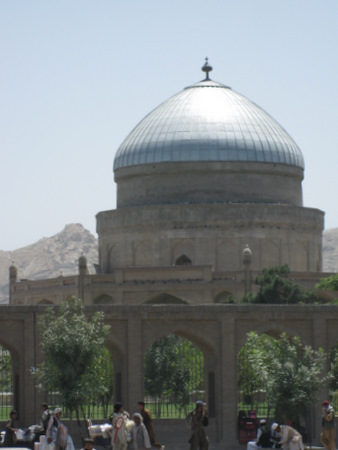|
Introduction to Formal Islam...just enough of what you need to know about formal Islam! Regarding Islam, various sects and "shades" will be encountered. This depends upon where in the country you may be and with which people group you are interacting with. The following is not meant to be a complete summary of formal Islam, nor to enter into debate on the merits for or against Islam. If you have information you would like to add to any part of the text below, please use the contact us form. There are two main ways to consider Islam in general - the main tenets of the religion: "Formal Islam", and the actual practice of the people in their everyday life: "Folk Islam." The two are intertwined within Afghanistan - any criticism is not acceptable. You also will not usually hear Afghans be able to explain these differences in these terms. It is with the utmost respect the following general description of formal Islam is offered. No intention of slander or criticism is intended. The description below is directed to non-Muslims who seek to gain a greater understanding of our Muslim friends. For those really wanting to learn Afghan culture, it is imperative to understand the differences between Formal Islam and Folk Islam. Understanding these differences within Afghanistan's main religion will enable newcomers (and veterans!) to understand the culture - how and why things are done. In Afghanistan, we see Islam demonstrated in three streams: (1) Sufism - the mystics, (2) practical Folk Islam - the masses of the people, (3) and Orthodox, or Formal Islam (I know some really nice orthodox Muslim Afghans who do practice orthodox Islam without being Taliban - the two are not necessarily hand-in-hand). Orthodox (formal)Islam The Main Tenets There are five main pillars of Islam:
The Creed The creed is the shortest in the world among the world religions. It is, ""There is no God but Allah and Muhammad is the Prophet of Allah." In order to become a Muslim, this prayer must fulfill 6 conditions: 1. It must be repeated aloud; 2. It must be perfectly understood; 3. It must be believed in the heart; 4. It must be professed till death; 5. It must be recited correctly; 6. It must be professed and declared without hesitation. The Prayers These are done five times a day: 1. between dawn and sunrise. 2. between midday and mid-afternoon. 3. between mid-afternoon and sunset. 4. just after sunset. 5. between nightfall and daybreak. Visitors to Afghanistan and traveling through other countries along the way like the U.A.E. will see arrows in the hotel rooms to orient visitors towards Mecca, the direction prayers should be prayed. There is also usually a prayer rug in each hotel room for visitors. It is common for Islamic owned airlines to offer prayers at the beginning and end of a flight. We were a bit surprised by this when we experienced loud Islamic prayers right before takeoff on PIA (Pakistan's main airline), traveling from Dubai to Karachi. Not used to such a public (and loud) ritual, and a bit stunned by the rickety airplane, we felt led to offer our own prayers for a safe flight! We've even seen Muslims pray in the space between the front rows of airline seats and the bathrooms. It's a bit disconcerting if you've never seen it, but don't be surprised when traveling in for the first time. It is best when you see Muslims praying to not interrupt them. It should also be expected of foreigners living in Afghanistan to allow their Afghan employees and colleagues to pray as they felt led to complete the five prayer times during the work day. It is also common when a Muslim is praying for him or her to move their hands over their faces, but without touching. The meaning of this is to symbolize the request of heaven for blessing and then the transference of a blessing to one's self. Fasting at Ramadan (Arabic: Ramazan) You will experience that as a foreigner, you are exempted from fasting, along with children, those who are sick, the insane, travelers, the elderly, women with menstrual or post-natal bleeding, and pregnant/breast feeding mothers. Typically, offices run by foreigners should not offer lunch during the month of Ramadan, and foreigners would be wise to quietly eat their lunches at their desks or away from their Afghan friends. This shows polite consideration. Also, when needing to conduct business meetings during the month of Ramadan, you will probably obtain better results if you plan them for the morning hours. As the day wanes, Afghans get tired and often irritable as they are so hungry and thirsty. You can expect your Afghan friends and colleagues to eat around 3am a gigantic meal, and then not touch food or tea until darkness falls and the Mullah's start the evening prayers at sunset. At that time, it's better to not keep your employees and friends from eating and being with their families. Return from Formal Islam to Afghanistan Religions
|
